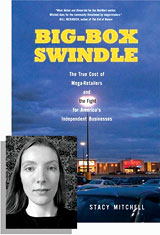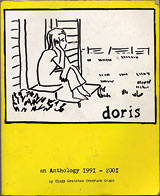Design Science update: Bucky would be proud
Last summer, more than 30 people from this area and around the globe hunkered down at UNCA for several days in search of practical ways to enrich education, conserve energy and protect the environment. The exercise, called the Design Science Lab, took problem-solving techniques developed by the famed polymath Buckminster Fuller and attempted to apply them to real-world problems. At the end of the exercise, the group vowed their work was not over. The real work would be to take their ideas to the public and begin the process of bringing them to fruition.
The next step in that process begins next week, when the public is invited to a showcase on the progress of the groups’ various initiatives. Guests will learn about the status of several projects — and discover how they can get involved.
The initiatives include such ideas as “Energy in a Box,” which literally is a box of powerful but inexpensive energy-saving devices such as compact-fluorescent light bulbs, caulk and other items that could be packaged and marketed to homeowners.
Another suggestion deals with “green roofs,” which would overlay city rooftops with vegetation. The roofs have been proven elsewhere to help reduce storm-water runoff, cool the surrounding concrete and asphalt jungle of the cities they inhabit, and help reduce buildings’ energy consumption.
The group is already making progress: It has begun an effort to get more green roofs on buildings in Asheville, working with Asheville City Council to request bids to place one on the city’s Civic Center. Group members are also looking into a green roof for the W.C. Reid Center in Asheville.
The Design Science event is free and sponsored by the Ghandi Team of Jubilee! Community. It takes place Thursday, Jan. 25, at 46 Wall St. in downtown Asheville from 7 to 8:30 p.m.
– Hal Millard
Tools for taking apart the big box

|
As Western North Carolina grows, large chain stores continue to pop up along the busiest roadways, offering a wide variety of merchandise at minimal cost. But on occasion, local opposition has made it tough for the stores to open: In an extreme example, vandals drove an onsite dump truck into the partially built shell of the Swannanoa River Road Wal-Mart when it first came under construction in 2004, causing thousands of dollars in property damage.
In a less-extreme example, last year West Asheville residents rallied to stop Wal-Mart from setting up shop on Patton Avenue. After months of meeting on weeknights, parading through the streets flying banners and turning out en masse at local-government meetings, an ad hoc citizens’ group triumphed when the retailer withdrew its proposal.
Given these indications of local anti-big-box sentiments, there ought to be ample turnout at the latest event sponsored by the Mountain Voices Alliance. Stacy Mitchell, author of Big Box Swindle: The True Cost of Mega-Retailers and the Fight for America’s Independent Businesses (Beacon Press, 2006), will speak at the Crowne Plaza Resort (1 Holiday Inn Drive, Asheville) on Thursday, Jan. 25, from 7 to 9 p.m.
“Mitchell’s book shows citizens’ coalitions how to fight big-box expansion,” says Heather Rayburn of Mountain Voices Alliance. “She also outlines how public officials can nurture local independent business development through progressive policy and land-use changes.”
Mitchell is a senior researcher with the New Rules Project, a creation of the national Institute for Local Self-Reliance, a research-and-educational organization focused on supporting locally based economies. Her talk is sponsored by a number of area environmental groups and citizen organizations, and is free and open to the public.
– Rebecca Bowe
Asheville’s Wiki war
It’s probably all my fault.
In March of 2006, I posted a well-intentioned addition to the Asheville entry on Wikipedia, the online collaborative encyclopedia. I didn’t intend to start trouble — I was just trying to add a few drops to that vast ocean of digital information.
At Wikipedia.org, anyone can make an addition to the collective pool of knowledge, as well as edit information submitted by others. So, I added a simple and relatively bland subcategory to the Asheville Wikipedia page about the local-music scene. What a horrible mistake.
You see, during the past nine months since I made that initial post, there has been a war of words on the page over just what constitutes “the local-music scene.” Bitter arguments over terminology have arisen, nitpicking “flame wars” have flared up over just which bands should be considered relevant, and no one seems to be able to do much except undo the work of their fellow contributors.
Other disputes, such as which external links about the area should be allowed and which film-and-TV references to Asheville should be permitted, have only made the problem worse. (A few seemingly shameless self-promoters who have added their personal accomplishments to the page have also earned the ire of Wikipedians.)
The escalation of spite eventually got out of hand. It fact, it got to the level of being termed an “edit war” — the online equivalent of a battle royale.
Not surprisingly, at the urging of Wikipedian “Golbez,” the Asheville page was “locked” last month by the Web site’s administration — meaning that no new posts were permitted. Until last week, the page had its contents set in digital stone.
Now the good news: It was unlocked on Jan. 12, thanks to a compromise agreement on the discussion page. Still, major issues about how the page will be revised are yet to be addressed.
Which begs the question: What changes would you make?
– Steve Shanafelt
Silent no more

|
Cindy Crabb has a lot to say. First off, she may be Asheville’s most-heard-of unheard-of writer. Since 1991, she’s self-published her thoughts and stories in a fanzine called Doris. During its decade-and-a-half existence, the tiny, mostly handwritten ‘zine has made its way through underground circles around the world. In 2005, Microcosm Publishing compiled various issues into an anthology.
Over the years, the ‘zine has covered a wide spectrum of subjects: politics, gardening, playing in bands, herbal health and hitchhiking through Siberia, to name a few. The content is drawn from Crabb’s personal experiences, with strong undertones of feminism, community-building and grassroots/leftist politics.
In recent issues of Doris, though, Crabb’s writing has homed in on one point in particular. “I had a few years where [sexual] abuse issues were really big in my life,” she says. “I was dealing with abuse issues of my own and people were talking to me about those issues a lot, and they were really at the forefront of my life. Plus, I feel like people think that sexism is dead and we don’t have to think about it anymore, but I kept thinking, ‘God, it’s not dead and we’re still really affected by it. Men and women.'” Following this thread, Crabb started writing a column for Slug and Lettuce, a free newsletter focusing on music, art and politics. Titled “Frozen Inside,” the column deals primarily with sexual abuse and sexism, as well as women’s health.
Now, Crabb is gearing up to take her thoughts from the smudgy newsprint pages of Doris and Slug and Lettuce into the lecture hall. She’ll present a talk entitled “Silencing and Unsilencing” at UNCA on Thursday, Jan. 25.
“It’s about ways that we’re silenced individually, culturally and, as a whole society, institutionally,” she says. “It’s about ways to recognize it and confront it and change the … sometimes subtle, sometimes brutal ways that silencing takes place.” Such limitations, she says, amount to “ways that we stop ourselves from becoming full human beings, and ways that people who have power over us stop our full development.”
While Crabb has done readings in the past, this will be her first formal lecture. “It’s what I’m always writing about, but I’m going to try and bring a bunch of things together with more of a focus on fundamental change in the world,” she says. “But,” she adds thoughtfully, “not in a dogmatic way.”
Crabb’s free talk takes place at UNCA’s Humanities Lecture Hall at 8 p.m. on Thursday, Jan. 25.
– Ethan Clark
CIBO TV ad blasts community activists
The Asheville-based Council of Independent Business Owners can accurately be described as pro-development, and a new TV ad CIBO is sponsoring on local channels reinforces the description.
The ad weighs in on recent debates over how and how much to regulate new developments. Community activists have called for a moratorium on steep-slope development in Buncombe County to afford planners time to evaluate and perhaps further regulate such construction. In response, the CIBO ad portrays moratorium advocates as a “small group of radical activists” and frames the debate as a matter of “extremism versus responsible growth.”
The ad argues that a moratorium will curtail economic growth and cost construction jobs; at one point, a little girl reminds watchers, “My daddy needs his job to provide for our family.”
Local developer Rusty Hunter is featured as well, arguing that government restraints will hurt his business and are irresponsible. Still, he tells Xpress that critics shouldn’t read too much into the TV spot. “I think there’s a misunderstanding about the ad,” he says. “We’re absolutely in favor of new ordinances. What we’re not in favor of is an overall moratorium on development.”
The ad uses video clips from the Buncombe Board of Commissioners public-comment period on Sept. 5, when local activists spoke in favor of a moratorium and presented petitions in support.
Julie Brandt, whose call for a moratorium is included in the ad, is a developer and member of the Asheville Downtown Commission. “I’m not sure what their point is,” she says of CIBO’s production. “They’re blowing the moratorium idea out of proportion and the commercial is misleading on many fronts. It’s not going to put people out of work. It takes six months to build a house, and a six-month moratorium won’t affect employment.”
Hunter disagrees. “It would affect our economy incredibly,” he says.
– Cecil Bothwell



Before you comment
The comments section is here to provide a platform for civil dialogue on the issues we face together as a local community. Xpress is committed to offering this platform for all voices, but when the tone of the discussion gets nasty or strays off topic, we believe many people choose not to participate. Xpress editors are determined to moderate comments to ensure a constructive interchange is maintained. All comments judged not to be in keeping with the spirit of civil discourse will be removed and repeat violators will be banned. See here for our terms of service. Thank you for being part of this effort to promote respectful discussion.